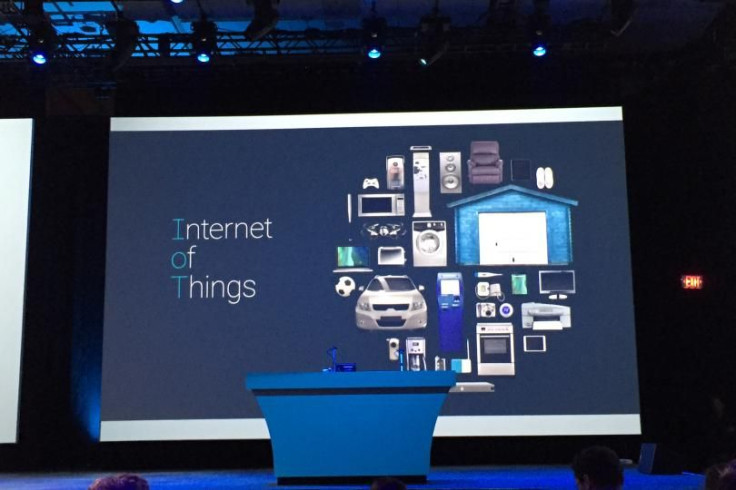IoT Security: Internet Of Things Will Likely Continue To Grow, Pew Report Says

The internet of things has been a main focus among tech companies in recent years as more manufacturers have figured out ways to integrate online connectivity into devices like cars and home appliances. But a report from the Pew Research Center and Elon University’s Imagining the Internet Center finds many industry analysts are taking a largely pessimistic view toward the growth of the IoT industry.
In the survey, researchers polled around 1,200 analysts, academics and industry members to get their views on the growth of IoT. While 15 percent of those polled said significant numbers of people would choose to disconnect from the IoT, the remaining 85 percent of experts said users would likely choose to further integrate into the IoT thanks both to the convenience of IoT and the difficulty in disconnecting from it.
Read: Nearly Half Of Businesses Experience Breaches Because Of Internet Of Things
Many of those polled agreed on several broad IoT development points. The convenience of having your devices universally synced would be appealing to many users. For example, a user could use a virtual home assistant to double check on appointment information and sync the destination with a car.
However, as the popularity of IoT increases, many say it will become even more difficult to remove oneself from these ecosystems or minimize their impact.
“Despite hacks and privacy issues, people will feel a need to keep connected, partly because companies will reward them for doing so [or make life difficult if they don’t],” Joseph Turow, a communications professor at the University of Pennsylvania, said in the report. “People will feel resigned to navigating an environment where data are key coins of exchange.”
More importantly, the security of IoT remains makeshift and decidedly a work in progress. As the Pew report notes, IoT devices repeatedly have been vulnerable to being hijacked by hackers for various applications. Late last year, IoT devices like printers and baby monitors were used to launch a distributed denial of service attack against internet performance company Dyn.
Most general users, however, likely will choose to ignore or downplay the risk of these one-off attacks in light of IoT’s upsides. Generally, experts say users doubt they could be affected personally and would be willing to accept the risk for IoT’s upsides.
To a degree, these users aren’t wrong either — as the report notes, the IoT likely could see additional improvements from companies as the field becomes more developed. At the moment, the market for IoT devices is still relatively early, with useful applications like smart cars being paired with novelties like refrigerators with touchscreens. As consumers start to migrate to IoT devices in higher numbers, companies potentially could improve the quality of security to remain competitive.
Read: Smart TVs, Smart Speakers, Other IoT Devices Remain Vulnerable Post Mirai Botnet
But at the same time, the increasing interconnectivity that IoT encourages comes with significant risks. As the report notes, many experts fear exploits and attacks will be easier to conduct and have greater costs than typical events like data breaches of user information.
In a poll response from an anonymous Microsoft engineer, the engineer pointed out these costs, potentially, could be physical and violent.
“Most people will move more deeply into connected life,” the engineer told pollsters. “Then there will be some catastrophe — some enormous hack that costs thousands and [takes] lives — and then people will try to disconnect. For example, self-driving cars take off and then someone figures out how to hack them, causing an enormous loss of life in one fell swoop.”
Other experts had similar concerns over the potential civil liberties intrusions that could be possible in an IoT-centric world.
“A recent court ruling stated that we should no longer have any expectation of privacy in our internet-connected devices,” network security consultant T. Rob Wyatt said in the report. “Considering that we now have forks, toothbrushes, health monitors, mattresses, sex toys and more connected to the internet, this ruling has profound implications to personal life, privacy, and checks and balances to government intrusion and control.”
© Copyright IBTimes 2024. All rights reserved.











